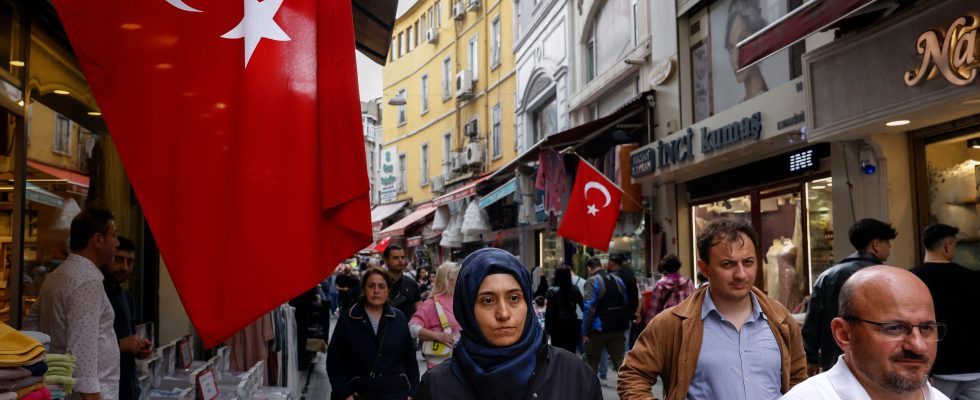After the victory of Recep Tayyip Erdogan, re-elected president on Sunday May 28 with 52% of the votes, amazement and dejection reign among the Turks opposed to his Islamo-nationalist power. Despite the economic crisis caused by its monetary policy over the past two years, despite the corruption scandals, despite its growing authoritarianism and its erratic management of the tragic earthquake of February 6, the king knew how to maneuver to enter its third decade in power. He even has a large majority in the Assembly…
“I see that I don’t know the society in which I live,” breathes Hüseiyn, a fifty-year-old architect, surprised and disappointed by the results. “I also realize that I’m not sure I want to continue living with these people. [NDLR : les électeurs d’Erdogan] who, in any case, do not want to live with me”, he says. Father of a seven-year-old child, he plans to leave with his wife, a doctor, to settle abroad. “J I have leads for Italy and the United States, recounts Hüseiyn. I don’t see a future here for my family and I’m not the only one: around me, many friends are also considering leaving.”
Opponent killed on election night
President Erdogan’s election campaign has further heightened the tension of an extremely polarized society. By agonizing with insults an opposition presented as composed of “terrorists”, “traitors” or “LGBT”, by resorting to “deepfakes” (or “hypertrick”), these videos altered by artificial intelligence to show the opposition hand in hand with the Kurdish guerrillas of the PKK, or by spreading false news on the officialization of marriage with animals, the president and his entourage have finished dividing Turkey.
The disastrous consequences of this polarization were already felt when, on the evening of May 28, supporters of Erdogan celebrating his victory stabbed an opponent to death in the city of Ordu, on the shores of the Black Sea. The tension and even the violence simmering in Turkish society may not end with the electoral period, the reis and his supporters on the contrary multiplying provocative and threatening speeches against the opposition. The aggravation of the economic crisis, which will first affect the most modest households, ie the bulk of the electoral battalions of Turkish Islamo-nationalism, also risks throwing oil on the fire.
In order to allow his re-election, the Turkish president, who took control of the Central Bank in 2021, pushed it to use its last reserves of gold and dollars to maintain the course of the Turkish lira and avoid a panic of the voters. Result, since May 28, the national currency unscrews, losing 1% of its value in the single day of May 30. “With negative net reserves of 60 billion dollars, the Central Bank is now unable to curb the fall of the pound”, warns, worried, the economist Murat Birdal.
As he did for his election, the Turkish president may be counting on remittances from Russia or the Gulf countries as well as foreign currency income from tourism as summer approaches. “But for an economy the size of Turkey, this will not allow us to avoid a moment of crisis that the government has managed to postpone but which has become inevitable”, judges the professor from Istanbul University.
Towards a change in monetary policy?
While he had promised during the campaign that he would maintain the course of his very unorthodox monetary policy adopted since 2021, organized around the fall in interest rates and which has only boosted the inflation that it was supposed to fight, the Turkish president seems ready to change course.
Erdogan thus met Mehmet Simsek, former Minister of Economy who enjoys the confidence of international financial institutions. But job changes in the administration and ministerial cabinets, coupled with a return to a more orthodox economic policy of raising interest rates, will not automatically be enough to attract foreign investors. The latter remain scalded by the volatile temperament of the Turkish president and by the absence of legal guarantees, in a country where the independence of justice is only a distant memory.
Disappointment, tension and worsening of the economic situation are therefore likely to push more and more Turks to leave. Visibly worried about the phenomenon, the consular authorities of European countries have already, for several months, multiplied the refusals of tourist and even student visas, for fear that they will facilitate a wave of illegal immigration. Prior to the results, Erdogan’s opponents called the election “the last exit before the tunnel”, a traditional Turkish expression. They missed the exit, and Turkey enters a long, dark tunnel.
